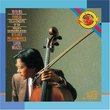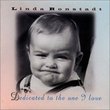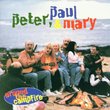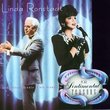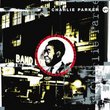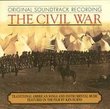| All Artists: Brad Mehldau, Renée Fleming Title: Love Sublime Members Wishing: 1 Total Copies: 0 Label: Nonesuch Original Release Date: 1/1/2006 Re-Release Date: 6/27/2006 Genres: Jazz, Pop, Classical Styles: Vocal Jazz, Vocal Pop Number of Discs: 1 SwapaCD Credits: 1 UPCs: 075597995220, 075597995268, 755979952217, 007559799522 |
Search - Brad Mehldau, Renée Fleming :: Love Sublime
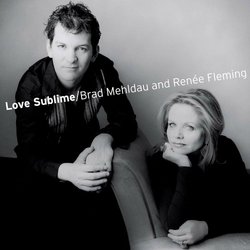 | Brad Mehldau, Renée Fleming Love Sublime Genres: Jazz, Pop, Classical A collection of duets for voice and piano, Love Sublime is based on the writings of poets Rainer Maria Rilke and Louise Bogan and addresses faith and doubt, youth and aging, male and female, romantic yearning and mature re... more » |
Larger Image |
CD DetailsSynopsis
Album Description A collection of duets for voice and piano, Love Sublime is based on the writings of poets Rainer Maria Rilke and Louise Bogan and addresses faith and doubt, youth and aging, male and female, romantic yearning and mature reflection. The voices of the writers are very much present in the melodies and rhythms of Love Sublime. Similarly Requested CDs
|
CD ReviewsA Vast Project.... Rick Cornell | Reno, Nv USA | 12/12/2006 (3 out of 5 stars) "I rarely review a c.d. with less than four stars. I review singers, and I see no point in thrashing or gently thrashing someone who is relatively unknown to the public at large. But Renee Fleming is one of the top opera singers in the world (and with her foray into the popular arts, with last year's "Haunted Heart", really one of the top singers, period); and Brad Mehldau one of the top jazz pianists. Anything they do together commands attention, good bad or ugly. And this c.d., consisting of Mehldau's original music to poems by Rainer Maria Rilke (and three more in the same vein by Louise Bogan), done as artsongs, is a vast project. But I recall a saying I first learned when I was very young: Never start vast projects with half-vast ideas. And, I fear, that's what has occurred here. There are two basic things about this c.d. to which I object: 1) These are English translations of Rilke's Love Poems to God. To these American ears, I understood about 20% of what Ms. Fleming sang. When I'm striving to figure out what she's communicating (and the message is difficult and multi-layered, as here), I'm thinking she'd have been better off sticking with the German. With her beautiful, soaring voice, Ms. Fleming is able to communicate the meaning of her words; and that meaning comes through better if I'm not concentrating on what the deuce she's singing about. (For example, I loved Maria Rita's "Segundo" from earlier this year for that reason; because I don't speak Portuguese, I could just concentrate on the emotion in her voice, and it got to me) 2) Mehldau's original music is very spare, very austere. That is certainly appropriate for this project. But it's constant. Nothing swings here; nothing soars; nothing sighs; nothing whispers; nothing shouts; and absolutely nothing is the least bit catchy. Dismiss me as one too stuck in the romantic and post-romantic era, if you must. I'm not saying that artsongs have to sound like they were composed by Brahms; but when track one sounds exactly like track three, which sounds exactly like track seven, I start to lose patience. Musically, the best track is #11, the title track (with words not by Rilke or Ms. Bogan, but by Mehldau's wife, Fleurine); but by that time, I feel like I'm listening because I have to. I give this 3 stars because I think it's important for jazz musicians to do projects like this, that take the artform beyond covers of "Love For Sale." And the record will reflect that I adored Luciana Souza's "Neruda" and Patricia Barber's "Mythologies", to name but two intellectually challenging examples. I don't love this. Sorry. RC" Labor of love, perhaps, but earthbound. Samuel Chell | Kenosha,, WI United States | 02/18/2007 (3 out of 5 stars) "I thought my expectations for this meeting were reasonably in line--I didn't expect a "Dichterliebe" or "Winterreise" but, knowing the credentials and talents of both artists, was prepared for some engaging melodies and harmonies, perhaps revealing Mehldau's love of Brahms or Mahler, and some incisive and infectious if not jazzy rhythmic accompaniment suggestive of Shostakovich or Stravinsky. What's most disappointing about the album is that after listening to it once (hardly sufficient, I realize, for an informed review), I find myself lacking any motivation to explore it further.
Mehldau's ambiguous tonalities (12-tone serialism or simply impressionistic color splashes?) often reflect the mood of a text, but rarely does the piano rise to the challenge of becoming a major player or discrete voice in the drama within the poem. Fleming deserves praise for what must have been exceptionally challenging music--melodies that are frequently elliptical, angular, rhythmically and harmonically off-center--but sometimes all of the talent, effort, and accomplishment do not add up to a moving or illuminating aesthetic result. (Why is the diva's diction, which was so clear on "Haunted Heart," so difficult to understand here? I frequently converse with a "classically-trained" vocalist who insists that legit singing, when done properly, should be no more unintelligible than popular singing.) I have never heard in Mehldau's "jazz" playing the "singing" romanticism with which he is frequently associated (the comparisons with Bill Evans I would object to as vigorously as Mehldau himself does). Perhaps if the two artists had elected to go with a less abstract, more programmatic narrative/dramatic text, such as those favored by Shubert/Schumann, the result of this quest for a Love Sublime would have been more focused, purposeful, and inarguably successful as a shared experience. (I notice that even the "favorable" reviews speak more to the "project" than to the music itself. Was anyone "moved" by it?)" |

